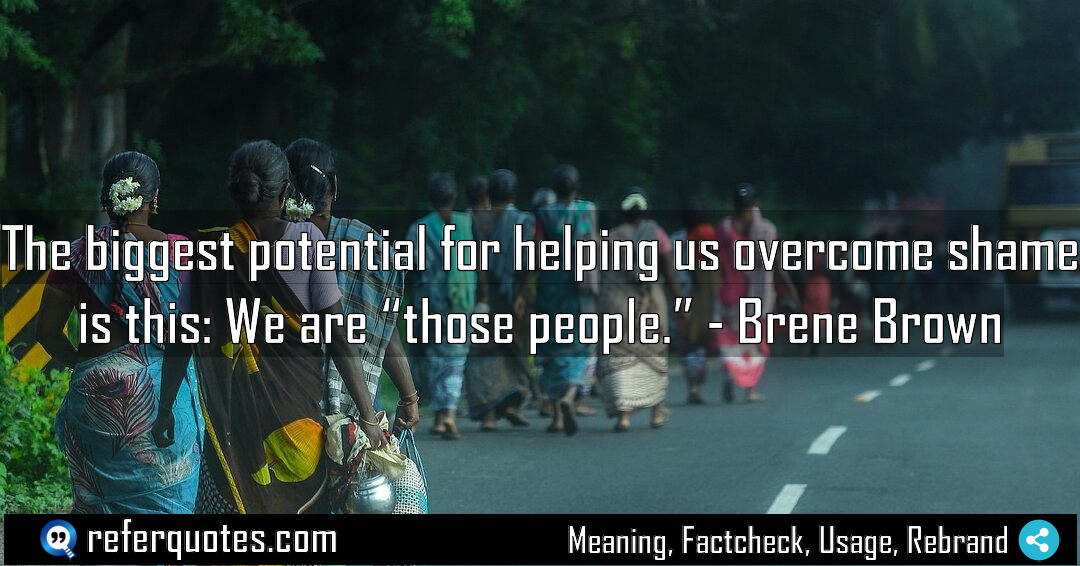You know, the biggest potential for helping us overcome shame is this incredibly simple but profound idea that we are “those people.” It’s a game-changer because it forces us to drop the act and realize we’re all in this together. Once you get that, the whole shame game starts to fall apart.
Share Image Quote:Table of Contents
Meaning
The core message here is about radical self-acceptance. It means stopping the mental separation between our “good” selves and the flawed “others,” and admitting that we are all, in fact, part of the same imperfect human tribe.
Explanation
Okay, let’s break this down. Shame thrives in secrecy and the belief that “I’m the only one.” It tells us, “You’re messed up, and everyone else has it together.” But Brené’s genius is flipping that script. When we have the courage to say, “Yep, I am ‘those people’—the one who fails, who feels insecure, who makes mistakes”—we instantly drain shame of its power. It’s the ultimate empathy engine. Your story of struggle is my story of struggle. And that shared truth? That’s the foundation of real connection and healing. It’s not about condoning bad behavior; it’s about acknowledging our shared humanity.
Quote Summary
| Context | Attributes |
|---|---|
| Original Language | English (3668) |
| Category | Wisdom (385) |
| Topics | belonging (37), connection (265), shame (13) |
| Literary Style | metaphoric (105), poetic (635) |
| Emotion / Mood | humble (74), inclusive (13) |
| Overall Quote Score | 69 (33) |
Origin & Factcheck
This quote comes directly from Brené Brown’s 2004 book, Women & Shame: Reaching Out, Speaking Truths, which was published in the United States. It’s a common misconception that this idea is from her later, more famous TED Talks, but its roots are deep in her early, foundational research on women and shame.
Attribution Summary
| Context | Attributes |
|---|---|
| Author | Brene Brown (257) |
| Source Type | Book (4032) |
| Source/Book Name | Women & Shame: Reaching Out, Speaking Truths (39) |
| Origin Timeperiod | 21st Century (1892) |
| Original Language | English (3668) |
| Authenticity | Verified (4032) |
Author Bio
Dr Brene Brown is the author of books such as Daring Greatly and The Power of Vulnerability. The TED talk and Netflix production based on her research reached out to millions of audience. She researches effects of courage and vulnerability in shaping people's work and relationships. She leads the Brené Brown Education and Research Group and provides evidence-based insights into practical tools to help people train themselves
Official Website |Facebook | X | Instagram | YouTube |
Where is this quotation located?
| Quotation | The biggest potential for helping us overcome shame is this: We are “those people.” |
| Book Details | Publication Year: 2004; (other edition details unknown) |
| Where is it? | Chapter/Section unknown |
